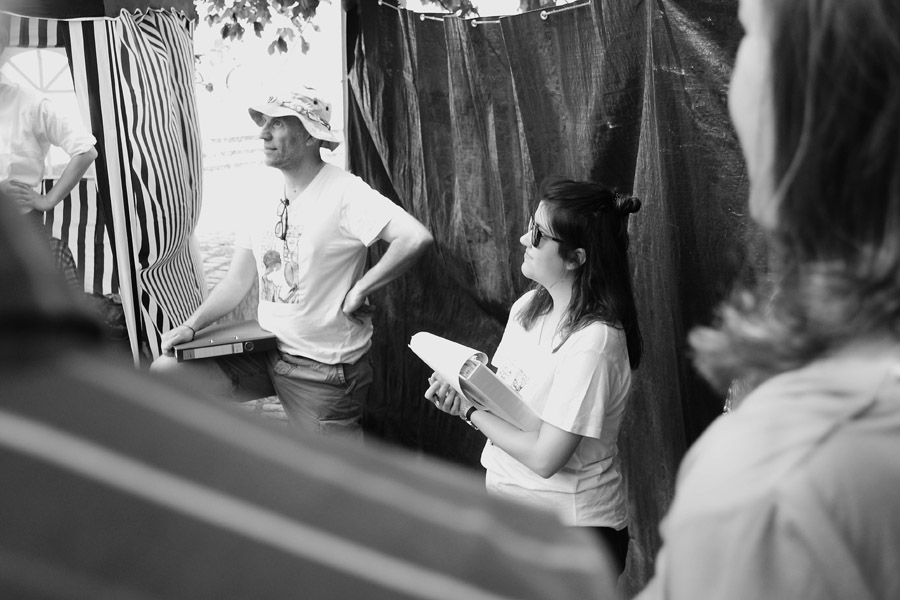This week’s blog entry focuses on stage management, without which any production would simply be lost. Why? Let’s hear it from this year’s Stage Manager, Jess, and Assistant Stage Manager, Simon.
Jess, who studied Shakespeare during her undergraduate studies at the LMU, knows that Shakespeare can be quite challenging, but seeing the words come to life on stage is simply so exciting and educational.

Simon still remembers his first encounters with Shakespeare during school, seeing Midsummer Night’s Dream at Regent’s Park Open Air Theatre, having a great day sitting in the sun watching the play unfold while eating ice cream. It was last year then when he played King Hamlet at Entity’s Hamlet production that his passion for Shakespeare was rekindled. So this year he joined the backstage team. Originally, he thought stage management might just mean to move a few props around and still be part of the production, but without all the work of learning lines etc. “WOW, was I wrong there,” he says, “what I did not realize is how much goes on before and during the production. I really see and appreciate much more the role of the Director and Stage Manager now, and both Conny and Jess in these roles are so dedicated and organized, you just get swept up in the passion and drive that is needed to put something like this on.”

Jess agrees, stage management is a big and important job. Stage managers make sure that the director is able to bring their vision to the stage by facilitating the smooth running of rehearsals and performances. For one, this means making sure that everyone involved is there on time and reprimanding them, if they are not. For another, stage managers coordinate the build-up and striking of the set, as well as the organisation of all props backstage. In addition, a stage manager takes general rehearsal and blocking notes to make sure that any questions about previously rehearsed scenes can be easily answered; it is to keep a record of the production in written form.

So what about this production being outdoors? What specific challenges have you encountered, or do you foresee for the production times?
Health and safety are probably the most pressing issues at the Theatron, Jess emphasises. The stone stairs and stage area, while beautiful to look at, are definitely much tougher than most indoor venues and injuries can happen easily. Additionally, the weather is somewhat of a constant enemy when it comes to outdoor theatre. If it is too hot, frequent breaks in the shade are needed to keep us all from melting into little puddles while even the lightest drizzle of rain can wreak havoc on a neatly written page of notes.

Yes, the weather, Simon joins in, let’s hope the rain holds off for a while now, especially during performances. But luckily the weather has improved, May was simply too wet and cold to rehearse outdoors.

We certainly did have a few hot Sunday rehearsals at the Theatron lately, that’s true. So how do we cope? Lots of water, many breaks in the shade and a good sense of humour. It does help though that there is a beer-garden close-by, a neat outlook for refreshment after rehearsals…
What a team! Good to read behind the svenes, it certainly does take a lot of hard work to bring a production from script to stage.
LikeLike
*(prompt) scenes!
LikeLike